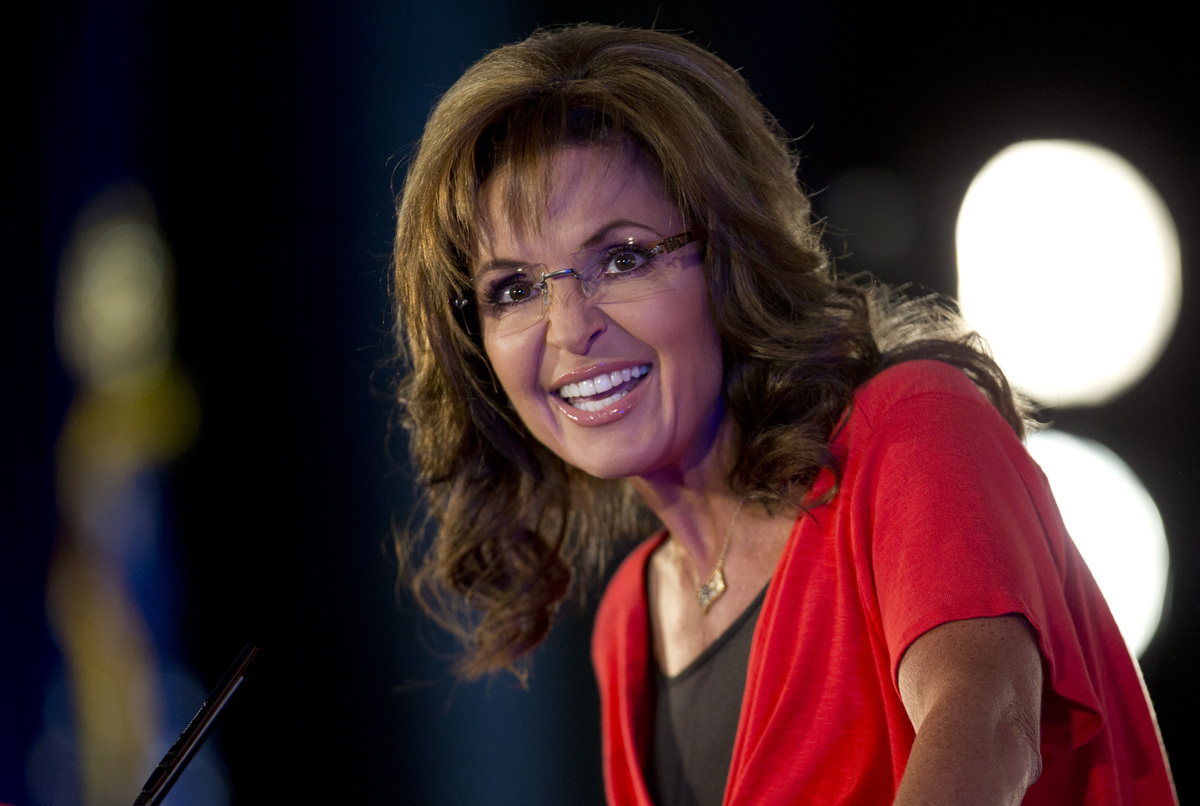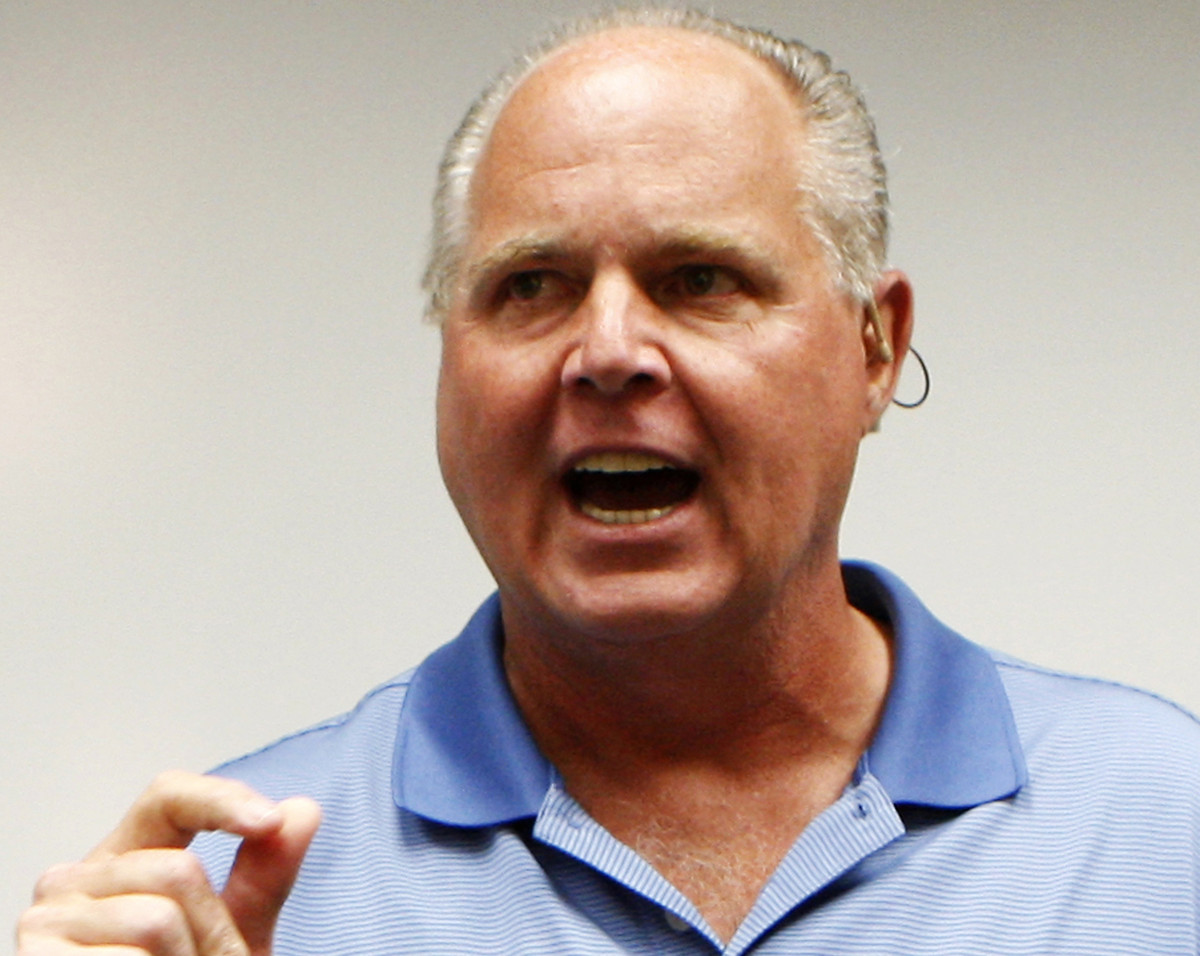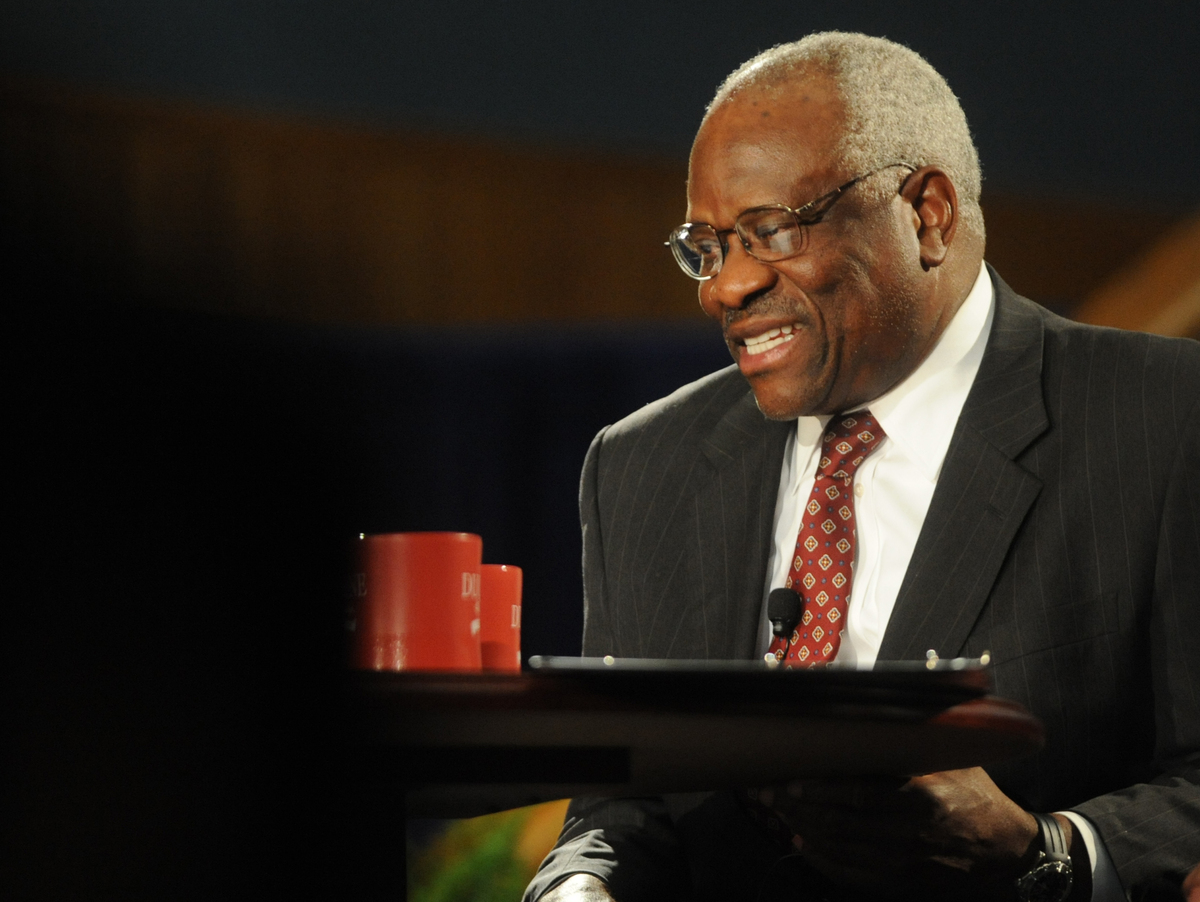U.S. Constitution
See other U.S. Constitution Articles
Title: Jeff Sessions says if Americans don’t want him to enforce marijuana laws, they should change them
Source:
Market Watch
URL Source: http://www.marketwatch.com/story/je ... 01-11?siteid=yhoof2&yptr=yahoo
Published: Feb 11, 2017
Author: Trey Williams
Post Date: 2017-02-11 12:27:59 by misterwhite
Keywords: None
Views: 24328
Comments: 80
If the American people are worried about freshly confirmed Attorney General Jeff Sessions’ approach to enforcing federal marijuana laws, he says they should get Congress to change them. During his Senate confirmation hearing back in January, Sessions answered questions on marijuana among other issues, but didn’t offer a definitive stance on what marijuana enforcement would look like under his justice department. “I won’t commit to never enforcing federal law, [Sen. Patrick Leahy], but absolutely it’s a problem of resources for the federal government,” Sessions said. “Good judgement on how to handle these cases will be a responsibility of mine, which won’t be an easy decision, but I will try to do my duty in a fair and just way.” Sessions also said he echoes the position former attorney general Loretta Lynch took during her confirmation hearings. Lynch said then she did not support the legalization of marijuana and that it would not be the position of her justice department to do so. Though 28 states have legalized medical marijuana use, eight states have passed recreational laws and 21% of the U.S. population now lives in a state where smoking weed is legal, the federal law still states marijuana is an illegal substance. And the drug is classified as a Schedule I drug along with heroin, LSD and ecstasy. Sessions, in the past, has made it clear he opposes marijuana legalization. “Good people don’t smoke marijuana,” he’s on record saying. And further back he allegedly said he thought KKK members were OK until he learned they smoked marijuana. He has since called that a joke. But in a Trump presidency, he’d be asked to forward the Trump agenda and not his own, and a spokesman for President Trump made it clear Sessions would be implementing the Trump agenda, which is promising for the marijuana industry. Donald Trump has supported state’s rights in legalizing and establishing marijuana policies. Robert Capecchi, director of federal policies at the Marijuana Policy Project, said they are cautiously optimistic the incoming administration will continue current policies and not interfere in state laws. “We remain cautiously optimistic that the Trump administration will refrain from interfering in state marijuana laws,” Capecchi said in a statement following Sessions’ confirmation. “We are hopeful that Mr. Sessions will follow the president’s lead and respect states’ rights on marijuana policy. “It would be shocking if the Trump administration attempted to steamroll the citizens and governments in these states to enforce an increasingly unpopular federal policy.” In the U.S. about 60% of Americans support marijuana legalization, and following the seven states that recently voted to legalize recreation, or medical marijuana, more are looking to take steps toward legalization. At this point, the possibility of additional states taking the plunge, or federal legalization getting closer is unknown, but unlikely. Some of the policies put in place by the Justice Department in the last eight years have been valuable, Sessions said during his hearing, but he’s been critical of the Obama administration’s hands-off approach when it comes to federal marijuana laws. “It’s not so much the attorney general’s job to decide what laws to enforce. We should do our jobs and enforce laws effectively as we’re able,” Sessions said during his hearing. “The U.S. Congress made the possession of marijuana in every state — and the distribution — an illegal act. If that’s something that’s not desired any longer, Congress should pass a law to change the rule.”
Post Comment Private Reply Ignore Thread
Top • Page Up • Full Thread • Page Down • Bottom/Latest
#1. To: misterwhite (#0)
Since the 17th Amendment, state governments have no say in federal laws. Until the 17th, US senators were appointed by state legislatures so the Senate was controlled by the state governments collectively. Under that scenario, 56 senators would likely now be in in favor of legalizing Cannabis nationwide, which would likely be enough to get the job done. According to the article, 60% of Americans are in favor of legalization. That shows that those favoring continuing criminalization of Cannabis to be only a minority of Americanns, and therefore should no longer in the interests of the DOJ to prosecute. What Sessions is suggesting is simply a formality of a foregone conclusion.
He's right. It's his job to enforce laws,not pick and choose which ones he wants to enforce.
BOYCOTT PAYPAL AND CLOSE YOUR PP ACCOUNTS NOW! ENCOURAGE OTHERS TO DO SO,TOO! ISLAM MEANS SUBMISSION! Why is democracy held in such high esteem when it’s the enemy of the minority and makes all rights relative to the dictates of the majority? (Ron Paul,2012) American Indians had open borders. Look at how well that worked out for them.
Yeah. And 85% were going to vote for Hillary. "But polling absent consequences is a form of protest. With accountability, minds may change ..."
Sincerely...MUD "Devolve Power Outta the Federal Leviathan and Back to the States, "Devolve Power Outta the Federal Leviathan and Back to the States, Sarah Palin “I can’t claim a Bill Clinton and say that I never inhaled.” Martha Stewart “Of course I know how to roll a joint.” Rush Limbaugh Clarence Thomas God bless them! Who among those in your post still smoke marijuana? Here are just a few smart “celebrities who quit smoking weed:” Lady Gaga Upon realizing that she needed help to get sober, Gaga called on performance artist, Marina Abramovic, to help her curb her weed cravings. Abramovic put her through an intense 3 day rehab at her own home, where she immersed Gaga completely in art. Gaga was able to kick the habit, and now only smokes "a little bit [of weed] at night." Natalie Portman Although Portman was kidding about the cocaine and cheating, it seems that her claims about smoking pot were true. Portman told Entertainment Weekly that she indulged in a little marijuana use in college, but that she's "too old for that now." Paul McCartney "Back then, I was just some guy around London having a ball, and the kids were little, so I'd just try and keep it out of their faces," he explained. "I don't do it anymore. The truth is, I really don't want to set an example for my kids and grandkids. It's now a parent thing." Yelawolf Although their styles seemed to clash, the two had an awesome time on tour together. GZA Although he relapsed a year later when Wu-Tang went on tour, he claims to have quit for good. Nowadays, he doesn't even allow people to smoke joints in his car, because he doesn't like the smell. If one of his buddies wants to get high, they'll have to take it outside. RZA "Making music and weed kind of went together for me," he said. "Many rears, I've been in the studio making music, making hits, and weed was always there, but I've transferred myself to directing now. I'm a movie director. You gotta play it sober. I've been playing it sober. Superman focus. Superman stamina, zooming in." Mark Wahlberg "One day, we were driving and you could smell it from somewhere. My daughter asked what the smell was so I told her it was a skunk. Then she said, 'Sometimes Daddy smells like that!' to me and my wife. So I knew I had quit." J. Cole Cee Lo Green Mark Foster The "Pumped up Kicks" singer took this as a sign to put down the peace pipe for good. Travis Barker Barker was diagnosed and treated for 6 stomach ulcers. He plans to use his sobriety to become a better dad to his children. George Michael In 2012, Michael contracted pneumonia, and slipped into a coma for 3 weeks. He realized that his health took #1 priority, and decided to quit smoking marijuana for good. André 3000 “I was kind of abusing it," he told The Guardian. "I wasn’t looking my best. I had a platinum album out and I would do stuff like go to [the] projects to buy weed." Neil Young “I did it for 40 years," he told The Guardian. "Now I want to see what it’s like to not do it. It’s just a different perspective.” Kid Cudi He decided to quit drinking and smoking pot after his fame led him down a dark path of substance abuse and destructive behavior. Now, he engages in a much more healthy lifestyle, and has adjusted to his celebrity status in a much better way. http://www.ranker.com/list/celebrities-who-quit-smoking-weed/robert-desalvo
I challenge THAT quote, in particular...but more American folks have partaken in the pleasures/threats/whatever of THC-based products than haven't...as Bob Dylan once famously crooned, "EVERYBODY must get STONE'd!!" Only the TRUE WEIRDOZ have never even tried pot...LOL!! Yeah...I'm talkin' ATchoooU...MUD)B^/>] BTW...not U in particular, Deckard. "Devolve Power Outta the Federal Leviathan and Back to the States, No state has legalized either medical or recreational marijuana. Possession, use, or cultivation is a Federal crime in all 50 states. Nobody lives in a state where possession, use, or cultivation of marijuana is legal. All states can do is remove their own criminal laws against marijuana. Under a Trump administration, expect Federal prosecutions to resume. They can enter any pot farm or retail outlet and seize all property, cash or other, used to facilitate the unlawful activity.
I challenge THAT quote, in particular...but more American folks have partaken in the pleasures/threats/whatever of THC-based products than haven't...as Bob Dylan once famously crooned, "EVERYBODY must get STONE'd!!" Only the TRUE WEIRDOZ have never even tried pot...LOL!! Yeah...I'm talkin' ATchoooU...MUD)B^/>] BTW...not U in particular, Deckard. Mudboy Slim, can you provide a source for your statement that: “More American folks have partaken in the pleasures/threats/whatever of THC-based products than haven't.” All I can find are research reports like this one:
Neil Young is a monotone horrible singer... who can only talk through his songs. He is one of the worse singers in history. Hopefully he OD's
I'm the infidel... Allah warned you about. كافر المسلح
That is essentually correct. But over repeated use over time, the primeses of the psychosis become habitual, acceptable, and permanent references rather than temporary. The result is cognitive slippage and deterioration.
Men's Wearhouse founder reveals how smoking marijuana for 50 years changed his life
Looks like your one week time-out didn't improve your manners little boy. Real class act - wishing death on someone whose music you don't like. Happy ValenTUNEZ Day, y'ALL!! Utmost Regardz...MUD "Devolve Power Outta the Federal Leviathan and Back to the States, Real class act - wishing death on someone whose music you don't like." "Devolve Power Outta the Federal Leviathan and Back to the States, He was fired from his own company! A company HE founded. This is your shining example of success?
Yep. And they'd have to do that only once. Once the word gets out that they'd lose everything, there'd be a massive "Going Out of Business" sale. But, then again, dopers are the brightest bunch, so the feds would probably have to do it twice.
George Zimmer had a change in his life….he got pushed out of the startup called Men’s Wearhouse that he made famous….it’s now been almost three years since Zimmer was abruptly fired by the company he built from a single store into a multibillion-dollar empire.
Yeah, but he wasn't fired overnight. My guess is that his leadership and judgement had been in decline long before he was fired. Probably because years of smoking dope finally caught up with him.
He was fired from Men's Wearhouse, the company he founded 40 years earlier, in 2013 over differences with the company's board. This is your shining example of success? Yeah - I'm sure you have done oh-so-much better. While using marijuana - don't forget that part. While using marijuana - don't forget that part. How much had his daily consumption increased when he was fired – don’t forget that as a consideration for his termination.
That's a really piss poor response ... It's aughable ...
Let's see - smoking pot for 50 years, started the company 40 years ago and suddenly fired in 2013 over differences with the company's board. Seems to me you are grasping at straws again. That's a really piss poor response ... Your opinion of my responses are not of interest to me. The fact remains - George Zimmer started a business, ran it successfully for 40 years, and he smoked pot. Your inane posts don't change that simple fact. Your idea of a pothead comes from "Reefer Madness" or worse - Cheech and Chong. I bet you have "potheads" living in your gated community and don't even realize it. The truth is not of interest to you either….you have shown and proven that for years. You don’t even know what truth is….you are never exposed to truth in the “fake news” articles you post.
Let's see - smoking pot for 50 years, started the company 40 years ago and suddenly fired in 2013 over differences with the company's board. Seems to me you are grasping at straws again. What was the change that caused him to be “suddenly fired” from the company he started 40 years ago? If it wasn’t pot….then maybe male menopause? Seems to me that you need to do more comprehensive research next time….you may find a better example for your promotion of an illegal drug.
There goes Gatlin again - desperately trying to become relevant by declaring himself to be the sole arbiter of Truth. What a reprehensibly obnoxious little twat! WTF man - can you not read? He was fired over differences with the company's board. That happens uncountable times in business, you didn't know that? I've been tempted to take Tater off my bozo list on occasion. But, seeing you quote him, he appears to be a perpetual nuisance so he'll remain there.
(Compliments of the Linus 4tunez program.) Que sera sera...whatever will B, SHALL be...MUD "Devolve Power Outta the Federal Leviathan and Back to the States, HOOS tater? "Devolve Power Outta the Federal Leviathan and Back to the States, Tsk..tsk..tsk...must we ALWAYS resort 2 ad hominems, mis hermanos?...MUD "Devolve Power Outta the Federal Leviathan and Back to the States, I think *I* might need a few bong hits after seeing you write something that isn't insane. I actually agree with you on something. Both Neil Young and Bob Dillon are and always have been horrible singers. They just got away with it because they were such good song writers and musicians. Hopefully he OD's And you being you,sanity could only pay a short visit before feeling in terror. NOBODY OD's on pot,you freaking idiot. BOYCOTT PAYPAL AND CLOSE YOUR PP ACCOUNTS NOW! ENCOURAGE OTHERS TO DO SO,TOO! ISLAM MEANS SUBMISSION! Why is democracy held in such high esteem when it’s the enemy of the minority and makes all rights relative to the dictates of the majority? (Ron Paul,2012) American Indians had open borders. Look at how well that worked out for them.
tater = Gatlin Originally the handle was tater, then it was changed to Gatlin. Trying to hide his tracks when he came over from LP, but they point to those handles belonging to long time Obama supporters tater/Gatlin. Anything globalist, anti-American, with a government job, tater/Gatlin supports for the most part, no mater how evil they are. He's just a gov asskisser from way back. Maybe Fred remembers the phony excuse for the name change? Fred this is stone and i deleted your asshole statement.
Look what just washed up on shore. Welcome. Tater's return, with a new name... Gatlin. Reverend yukon preaches several sermons, before getting banned. Funny stuff! I wasn't talking "pot", shit breath. That hippie asshole, I'm sure does a narcotic or two.
I'm the infidel... Allah warned you about. كافر المسلح
If you really believe that gatlin lives in a 'gated
Comments (41 - 80) not displayed.
Top • Page Up • Full Thread • Page Down • Bottom/LatestIf that’s something that’s not desired any longer, Congress should pass a law to change the rule.
#2. To: misterwhite (#0)
#3. To: Pinguinite (#1)
"According to the article, 60% of Americans are in favor of legalization."
-- Jonah Goldberg
#4. To: misterwhite (#0)
which has done MUCH MORE DAMAGE to this Nation than any silly weed.
Localities, and Individuals as Prescribed in the US Constitution."
#5. To: misterwhite (#3)
of THC-based products @ the Federal Level, thereby leaving this decision up 2 the States...MUD
Localities, and Individuals as Prescribed in the US Constitution."
#6. To: Mudboy Slim, misterwhite (#4)
“Good people don’t smoke marijuana,” he’s on record saying.




“Truth is treason in the empire of lies.” - Ron Paul

Those who most loudly denounce Fake News are typically those most aggressively disseminating it.
#7. To: Deckard (#6)
“Good people don’t smoke marijuana,” [Sessions is] on record saying.
There are “good people who have smoked marijuana” and quit . Brad Pitt
Brad Pitt told Hollywood Reporter that he eventually grew tired of his Mary Jane habit towards the end of the '90s. It was causing him to feel sluggish and depressed. Pitt said, "I was hiding out from the celebrity thing, I was smoking way too much dope, I was sitting on the couch and just turning into a doughnut and I really got irritated with myself." 
When Lady Gaga injured her hip during her 2013 Born This Way Ball tour, she started smoking pot to ease the pain. Gaga was reportedly smoking up to 15 joints a day, and eventually realized that her habit was a problem. "I was just numbing, numbing, numbing myself then sleeping it off, then getting on stage, killing it in pain, then getting off and smoking, smoking, smoking, not knowing what the pain was," she told Mirror. 
Everyone remembers that infamous line from the SNL skit, "Natalie's Rap:" "When I was at Harvard/I smoked weed every day/I cheated every test/I snorted all that yay." 
Sir Paul McCartney first smoked weed with Bob Dylan back in the '60s, and has been toking on and off for about four decades. However, now that he's getting older, Sir McCartney has decided to quit in order to set a good example for his grandkids. 
In 2011, Yelawolf confessed to the Baltimore Sun that he no longer smoked weed because it gave him anxiety and paranoia. Most people smoke weed to chill out and mellow, but that lifestyle seemed to clash with Yelawolf's style. He went on tour with Wiz Khalifa, and spent many weeks opening for this chilled-out stoner. "I don't even smoke weed," he said. "I scream and jump around, act crazy. He's chill." 
In an interview with New York Magazine in 2007, GZA admitted that he was probably the only member of Wu-Tang Clan at the time who had quit smoking ganja. GZA quit smoking weed in order to be more productive. He said, "I could have done so much more in the past. I'd get up, roll a blunt at seven in the morning. If I played chess online, I wanted a blunt. If I read a book, I would smoke a blunt, and then I'm reading the same page like five times." 
GZA wasn't alone on the sobriety wagon for long! In 2012, RZA confessed in an interview to Chelsea Handler that he had given up the greens for good. Like his fellow Wu-Tang rapper, he sites lack of focus as one of the reasons why he stopped smoking pot. 
When he went onstage to accept Variety's Indie Impact award, no one expected Mark Wahlberg - head of Marky Mark and the Funky Bunch - to state that he had quit smoking weed. Wahlberg, now a successful actor, says he did it for his kids. 
In a special video interview for Hip Hop N More, J. Cole admitted that although he used to smoke, he doesn't anymore. "I just had a phase toward the end of college," he said. "That was my phase, but it was never for me." 
Cee Lo Green quit smoking pot in 2010, despite contributing vocal tracks to Slim Thugs's "Marijuana" the same year. The "Forget You" singer said that he had a panic attack once while smoking weed, and that the experience of lighting up was never the same again for him. 
Surprisingly, Snoop Dogg was the one to convince Mark Foster of Foster the People to quit smoking weed. In an interview with Q, Foster revealed, "I told Snoop, 'I quit smoking but I'd have [a blunt] with you now if I had the chance." Snoop Dogg replied, "Y'know what, brother: sometimes you gotta slow down and focus on your s--t." 
Travis Barker Travis Barker is listed (or ranked) 14 on the list Celebrities Who Quit Smoking Weed Photo: uploaded by Robert DeSalvo Travis Barker admits that he "used to love smoking weed," but after a cancer scare in 2012, the Blink-182 drummer decided to give it up for good. "I would smoke weed at night if I had anxiety. I always thought I'd be able to do that for the rest of my life, but when your health is on the line, you don't mess around." 
Wham!'s frontman, George Michael, tried to cut back on pot in 2009. He claimed to have decreased his weed intake a lot, slimming down the number of joints he smoked per day to only 8 or 9. 
During his time performing with Outkast, singer Andre 3000 said he'd keep an ounce of weed on him at all times. However, in 1998, the "Hey Ya" singer gave up drinking, smoking weed, and consuming animal products altogether. 
For nearly four decades, Neil Young has been toking weed. But after suffering a stroke in 2005, he decided to quit drinking and smoking all mind-altering substances. Young also quit smoking pot in order to have a clear head while he worked on his memoir, Waging Heavy Peace. 
Kid Cudi quit smoking weed because he couldn't handle the pressure of his overnight success. He told Headkrack's Hip Hop Spot,"I couldn't deal with fame, short and simple. For me, I could not wrap my head around the fact that a week before I blew up, I was just a regular dude."
#8. To: Deckard (#6)
Localities, and Individuals as Prescribed in the US Constitution."
#9. To: misterwhite (#0)
Though 28 states have legalized medical marijuana use, eight states have passed recreational laws and 21% of the U.S. population now lives in a state where smoking weed is legal, the federal law still states marijuana is an illegal substance. And the drug is classified as a Schedule I drug along with heroin, LSD and ecstasy.
At this point, the possibility of additional states taking the plunge, or federal legalization getting closer is unknown, but unlikely.
#10. To: Mudboy Slim (#8)
Gallup shows:
I also found that smoking cannabis causes ‘reality’ problems. Scientists have shown for the first time how cannabis users can become paranoid and lose grip of reality. A study revealed that the drug’s most powerful active ingredient reduces activity in a part of the brain that helps keep people sane. The inferior frontal cortex acts as a check on irrational thoughts and prevents inappropriate behaviour. But brain scans carried out on a group of volunteers showed that THC – the chemical responsible for a cannabis “buzz” – dampens down activity in the region. This was born out by the results of psychological tests, which revealed signs of temporary psychosis.1
#11. To: Gatlin (#7)
#12. To: Gatlin (#10)
I also found that smoking cannabis causes ‘reality’ problems. Scientists have shown for the first time how cannabis users can become paranoid and lose grip of reality. A study revealed that the drug’s most powerful active ingredient reduces activity in a part of the brain that helps keep people sane. The inferior frontal cortex acts as a check on irrational thoughts and prevents inappropriate behaviour. But brain scans carried out on a group of volunteers showed that THC – the chemical responsible for a cannabis “buzz” – dampens down activity in the region. This was born out by the results of psychological tests, which revealed signs of temporary psychosis.
#13. To: Gatlin, GrandIsland, misterwhite, Mudboy Slim (#10)
“Truth is treason in the empire of lies.” - Ron Paul

Those who most loudly denounce Fake News are typically those most aggressively disseminating it.
#14. To: GrandIsland (#11)
Neil Young is a monotone horrible singer... who can only talk through his songs. He is one of the worse singers in history. Hopefully he OD's
“Truth is treason in the empire of lies.” - Ron Paul

Those who most loudly denounce Fake News are typically those most aggressively disseminating it.
#15. To: Gatlin, mister4white, A K A Stone, Stoney, redleghunter, goldilucky, BufordP, kristinn, M. Thatcher, holdonnow (#10)
“More American folks have partaken in the pleasures/threats/whatever of THC-based products than haven't.”
Localities, and Individuals as Prescribed in the US Constitution."
#16. To: Deckard, GrandIsland, Willie Green, war, Biff Tannen, meguro, Fred Mertz, sneakypete, Funky Dan, jla, Angelwood, ironman (#14)
Localities, and Individuals as Prescribed in the US Constitution."
#17. To: Deckard (#13)
"Men's Wearhouse founder reveals how smoking marijuana for 50 years changed his life"
#18. To: nolu chan (#9)
"Under a Trump administration, expect Federal prosecutions to resume. They can enter any pot farm or retail outlet and seize all property, cash or other, used to facilitate the unlawful activity."
#19. To: Deckard, GrandIsland, misterwhite, Mudboy Slim (#13)
Men's Wearhouse founder reveals how smoking marijuana for 50 years changed his life.
#20. To: Gatlin (#19)
"... it’s now been almost three years since Zimmer was abruptly fired by the company he built"
#21. To: misterwhite (#17)
He was fired from his own company! A company HE founded.
“Truth is treason in the empire of lies.” - Ron Paul

Those who most loudly denounce Fake News are typically those most aggressively disseminating it.
#22. To: Gatlin (#19)
...he built from a single store into a multibillion-dollar empire.
“Truth is treason in the empire of lies.” - Ron Paul

Those who most loudly denounce Fake News are typically those most aggressively disseminating it.
#23. To: Deckard (#22)
...he built from a single store into a multibillion-dollar empire.
#24. To: Deckard, misterwhite (#21)
(Edited)
Yeah - I'm sure you have done oh-so-much better.
#25. To: Gatlin (#23)
don’t forget that as a consideration for his termination.
“Truth is treason in the empire of lies.” - Ron Paul

Those who most loudly denounce Fake News are typically those most aggressively disseminating it.
#26. To: Gatlin (#24)
Yeah - I'm sure you have done oh-so-much better.
“Truth is treason in the empire of lies.” - Ron Paul

Those who most loudly denounce Fake News are typically those most aggressively disseminating it.
#27. To: Deckard (#26)
Your opinion of my responses are not of interest to me.
#28. To: Deckard (#25)
don’t forget that as a consideration for his termination.
#29. To: Gatlin (#27)
“Truth is treason in the empire of lies.” - Ron Paul

Those who most loudly denounce Fake News are typically those most aggressively disseminating it.
#30. To: Gatlin (#28)
What was the change that caused him to be “suddenly fired” from the company he started 40 years ago?
“Truth is treason in the empire of lies.” - Ron Paul

Those who most loudly denounce Fake News are typically those most aggressively disseminating it.
#31. To: Deckard (#30)
#32. To: Gatlin, misterwhite, misterpink, misterbrown, misterblack, John GRAY, Willie GREEN, REDleghunter, snow bunny, brown sugar (#19)
Over unsounded gorges, through the rifled hearts of mountains, under torrents' beds, unerringly I rush!"
-- Captain Ahab, aka John "Bonzo" Bonham...
"Moby Dick..ick..ick..ick..."
Localities, and Individuals as Prescribed in the US Constitution."
#33. To: Fred Mertz (#31)
(Edited)
33...XXXIII...thirty-three!!
Localities, and Individuals as Prescribed in the US Constitution."
#34. To: Deckard, Gatlin, GrandIsland, A K A Stone, goldilucky, sneakypete (#29)
"What a reprehensibly obnoxious little twat!"
Localities, and Individuals as Prescribed in the US Constitution."
#35. To: GrandIsland (#11)
Neil Young is a monotone horrible singer... who can only talk through his songs. He is one of the worse singers in history.
#36. To: Mudboy Slim, Fred Mertz, tater Gatlin, canary cult (#33)
HOOS tater?
#37. To: hondo68 (#36)
#38. To: Fred Mertz, TEA Party Reveler, Murron, Biff Tannen, yukon (#37)
Title: Gatlin, Top Dog Come on in
Source: [None]
URL Source: [None]
Published: Jan 15, 2015
Author: A K A Meannie
Post Date: 2015-01-15 00:44:21 by A K A Stone
Keywords: None
Views: 25094
Comments: 127
#39. To: sneakypete (#35)
#40. To: Deckard (#26)
I bet you have "potheads" living in your gated community and don't even realize it.
.
.
.
[Home] [Headlines] [Latest Articles] [Latest Comments] [Post] [Mail] [Sign-in] [Setup] [Help] [Register]
